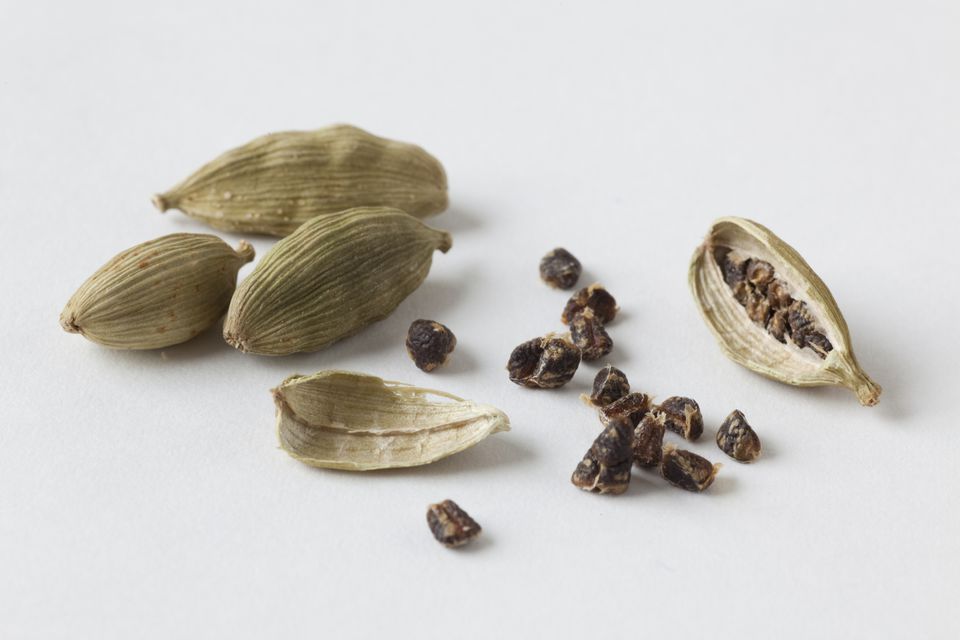
Cardamom is very seldom used in the U.S, however, it is one of the most recognized spices in the culinary world, that has been used for thousands of years. This seasoning originates from parts of South Asia, India, and the Middle East.
It has been used for freshening breath and a smoking cessation. Native populations have used this plant by chewing but may not have realized for centuries that chewing cardamom was improving their dental health. It also has been suggested the chewing on cardamom seeds is effective for reducing nicotine addiction for people trying to quit smoking. It is certainly a healthier alternative to chewing tobacco.
Cardamom: Caries Preventive Agent
Another study found cardamom extracts to be effective against such oral bacteria types as Streptococcus mutans and the fungus Candida albicans.4 The dentistry study in India, discussing the antimicrobial effects of cardamom on oral bacteria, supports it:
“The oil extracted from cardamom seeds is a combination of terpene, esters, flavonoids and other compounds. Cineole, the major active component of cardamom oil, is a potent antiseptic that is known to kill bacteria producing bad breath and other infections.”5
Other compounds in cardamom that exert healing effects include limonene, linalool, eugenol, quercetin and alpha-terpinyl acetate, which are pine oil flavonoids with potent antioxidant power. A poor diet is one of your mouth’s greatest threats, causing tooth decay and other types of problems for several different reasons, but as a quick review, cardamom imparts health for your mouth several ways:
- Antimicrobial activity
- Pleasant taste stimulates saliva secretion
- Fibers in cardamom help clean your outer teeth
- The strong camphor-like essence freshens breath
- May cut nicotine craving
Studies Enumerate the Healing Benefits of Cardamom
One interesting aspect of cardamom is its traditional use as an aphrodisiac, according to the featured study. Luxury Insider lists eyelid inflammation, pulmonary tuberculosis and digestive disorders as additional traditional uses.6 SelfHacked7 cites a study on how the spice’s antispasmodic properties relieve gut problems such as diarrhea8 and ulcers, in some cases better than drugs for the same condition,9 as well as the following advantages:
- Chronic inflammation — When a cardamom supplement was compared with a placebo on 80 prediabetic women, the researchers found that green cardamom supplements significantly decreased serum levels of C-reactive protein (CRP), a marker of inflammation, as well as oxidative stress biomarkers compared with the placebo group.10
- Boosts antioxidant activity — Twenty patients suffering from hypertension (high blood pressure) were given a three-month battery of cardamom powder to take, which increased the antioxidant activity in their bodies by 90 percent and reduced their blood pressure.11
- Prevents/dissolves blood clots — The same 20 patients with high blood pressure who took the green cardamom supplements also had an increased ability to dissolve blood clots, which also reduced their heart disease risks.
- Heart damage protection — Black cardamom fed to rats helped maintain their glutathione levels, which, as a result, helped protect their hearts against free radicals (which, one may infer, might also be the case with humans).12
- Decreases metabolic syndrome symptoms — Rats with markers of metabolic syndrome given black cardamom (as opposed to green cardamom) showed reversed symptoms: fat mass, triglyceride levels and blood pressure decreased, while their heart and liver function improved.13
Click to read the original article by Dr. Mercola
Sources:
“Chew on Cardamom” by Dr. Mercola








